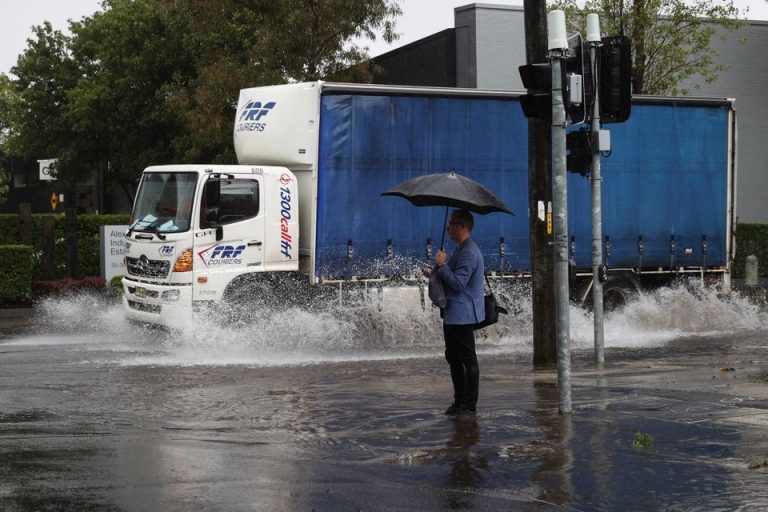
SYDNEY, (Reuters) – Residents in Australia’s southeast were warned on Wednesday to prepare for an intense weather system which could bring damaging winds and heavy rains over the next two days.
Victoria, home to Melbourne, is expected to be the worst-hit state with authorities urging residents in remote regional areas to stock essential supplies for at least three days as they fear rapidly rising waters could cut off entire towns. Much of Victoria state and northern Tasmania should brace for wild winds and widespread rains on Thursday of up to 120 mm (4.7 inches), about double the average for the entire month.
“Rain will be building through today, then into tomorrow, that will really be the peak day,” Bureau of Meteorology (BoM) forecaster Jonathan How told ABC television. “Keep an eye on those warnings … it will become quite dangerous out there.” Wind speeds could reach up to 100 km per hour (62 mph) across central and eastern Victoria on Thursday.
Several dams and rivers in Victoria are already full because of a multi-year La Nina event, typically associated with increased rainfall. The phenomenon is under way for the third year in a row and will likely last into next year.
Neighbouring New South Wales, which bore the brunt of a wild weather system last week, could receive up to 50 mm (2 inches) in its southern regions over six hours on Thursday that may cause renewed flooding along some rivers, the weather bureau said in its latest update. A body, believed to be that of a missing man, was found in a vehicle submerged in flood waters in the state’s central west region, police said late on Tuesday.
Riverine flooding is still threatening the inland town of Wagga Wagga, where some residents in low-lying areas were asked to evacuate overnight. Nearly 100 flood warnings remain across New South Wales although heavy rains have eased since Monday.






